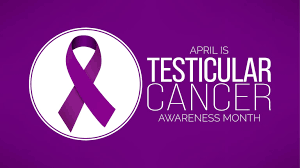Colon cancer is a serious and aggressive form of intestinal cancer, and its early detection and treatment are vital. When diagnosed at an early stage, patients have the best chance for survival and optimal health outcomes. Early-stage colon cancer, when treated appropriately, typically poses minimal long-term risks. And the good news is that if your doctor is competent, it can and will be caught early.
Routine screenings are crucial for diagnosing colon cancer. Some patients may show symptoms, while others may not. One common screening method is a colonoscopy, which involves the insertion of a tube with a camera into the rectum while the patient is under anesthesia. This procedure allows doctors to examine the colon for any polyps or unusual findings. If any abnormalities are found, a tissue sample can be collected for further testing.
Alternative screening options include CT scans or virtual colonoscopies, which are less invasive and create detailed images of the colon. Another option is Cologuard, where patients send a fecal sample to a lab to test for abnormal cells. Your doctor should be recommending these procedures to you sometime between when you turn 45-50 (with 45 being the newer standard). They should do it earlier if you are making complaints like terrible stomach pain or blood in your stools.
While these screening methods are generally effective, there are instances where misdiagnoses occur. Sometimes, a doctor may overlook a patient’s colon cancer or incorrectly diagnose them with a different colorectal issue. In other cases, a necessary colonoscopy may not be ordered, particularly if the patient has a family history of colon cancer or exhibits potential cancer symptoms.
Delayed treatment or misdiagnosis can severely impact patient outcomes. Such errors can result in patients facing a quicker decline, increased suffering, or even premature death due to colon cancer that could have been caught earlier. When the delay has been six months or more, that could potentially be a lawsuit and is certainly a case we’d want to investigate.
If you or a loved one has experienced a failure to diagnose or a misdiagnosis related to colon cancer, it may warrant a medical malpractice claim. I encourage you to reach out for a free, confidential evaluation of your situation. If you have a valid case, we can recommend a trusted attorney—someone we would suggest to our own family or friends. Remember, Illinois medical malpractice attorneys work on a contingency basis, which means there’s no fee unless they win your case.
Time is of the essence and if you wait too long, you could lose your right to sue. Call us any time at 312-346-5320 for a free case review. We cover all of Illinois.




